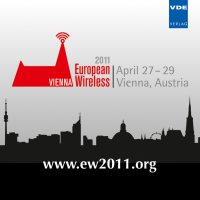Iterative Bit Flip Type-II Hybrid-ARQ Scheme for Wireless Networks
Konferenz: European Wireless 2011 - Sustainable Wireless Technologies
27.04.2011 - 29.04.2011 in Vienna, Austria
Tagungsband: European Wireless 2011
Seiten: 6Sprache: EnglischTyp: PDF
Persönliche VDE-Mitglieder erhalten auf diesen Artikel 10% Rabatt
Autoren:
Rehman, Obaid ur; Zivic, Natasa (Institute for Data Communications Systems, University of Siegen, Hoelderlinstrasse 3, 57076 Siegen, Germany)
Inhalt:
Hybrid-ARQ is used as a mechanism for error control and recovery in some of the most widely used wireless network protocols e. g., IEEE 802.16. HARQ employs forward error correction and requests retransmissions under adverse channel conditions. Many improvements over the standard HARQ have been proposed. Various studies have shown that the retransmissions themselves create a bottleneck in the throughput of the communication protocol. There is a need to lower the number of retransmissions under heavy noise so that the channel can be effectively utilized. There are some well known variants of the standard HARQ e.g., the so called Type-I and Type-II HARQs. In this paper, an enhancement over the standard Type-II HARQ scheme is proposed, whereby the number of retransmissions is reduced by recovering the erroneous packets at the receiver without the need for retransmissions. The proposed enhancement reduces the retransmissions, compared to the standard Type-II HARQ, at the same SNR. In case of a decoding failure, the received data packet is not discarded, rather processed further in an iterative manner using the side information available from the Turbo Decoder in the form of L-Values. The improvement in the bit and the packet error rates as well as the increase in the rate of successful packet transmission is visible from the simulation results presented in this paper.


